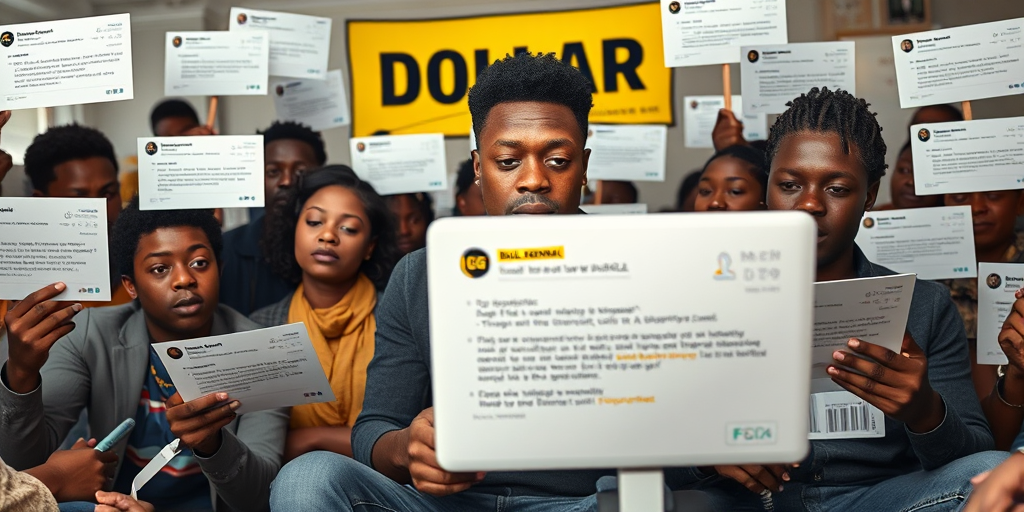Black Church Leader Calls for Dollar General Digital Protest, Echoing Target Fast Success
In a call for social and economic justice, Jamal-Harrison Bryant, the senior pastor of New Birth Missionary Baptist Church in Stonecrest, Georgia, has initiated an electronic protest against Dollar General. The protest echoes the earlier “40-day Target Fast” that Bryant led to address concerns over Delta’s rollbacks in diversity, equity, and inclusion (DEI) policies. Now, focusing on Dollar General, Bryant’s mission underscores the need for major retailers to reinvest in the communities they profit from.
The Mission Behind the Movement
Bryant’s protest targets Dollar General for allegedly abandoning DEI initiatives, which he believes disproportionately impact Black and low-income communities—key demographics among the chain’s customers. The pastor urges the retailer to commit to fair hiring practices, increase supplier diversity, and invest back into the communities it serves. Unlike the timed boycott of Target, this protest is envisioned as an ongoing effort with no set end date, calling for a sustained push for change.
A Grassroots Digital Protest Strategy
Supporters of Bryant’s initiative are encouraged to flood Dollar General with emails, phone calls, and social media posts, demanding concrete actions to fulfill DEI promises. This approach is not a traditional boycott; rather, it leverages digital activism to create continual pressure on the company.
The digital protest method draws particular relevance from the recent success with Target, where public pressure contributed to a significant drop in stock prices following perceived DEI rollbacks. From a share price of $137.91, Target’s fall to $88.76 marked a dramatic 36% decline, coupled with decreased foot traffic in stores.
Alabama’s Stronghold of Dollar General Stores
The spotlight on Dollar General is particularly significant in Alabama, which hosts a notable 975 stores, ranking it eighth in states with the most Dollar General locations. Kelley Thomas, a local consumer advocate, highlights the vast reach of the chain. “In Montgomery and Mobile alone, Dollar General locations are staple shopping hubs for essentials, making any shifts in their policies deeply impactful for everyday shoppers.”
Alabama’s dense cluster of stores underlines the retailer’s role as a primary provider of groceries and necessities for many rural and economically diverse communities. As such, changes in company policies could lead to tangible local impacts on both employment and consumer choices.
Broader Context and Historical Trends
This protest is part of a larger, national response to perceived DEI rollbacks, which have seen fluctuating corporate commitments since former President Donald Trump’s efforts to eliminate federal DEI initiatives. Consequently, economic blackouts have targeted major retailers across the country, aiming to hold companies accountable to diverse community standards.
Kimberly Jackson, a sociology professor at Alabama State University, points to the broader significance of these movements. “These protests are not just about policy on paper, but about acknowledging and rectifying decades of economic disparity.”
Lessons from the Target Fast
Reflecting on the impact of Bryant’s previous “Target Fast,” the campaign’s success set a precedent for how digital-led activism can affect corporate decision-making. In response, Target CEO Brian Cornell has sought dialogue with advocacy leaders, including Bryant and Rev. Al Sharpton, pledging to revisit and enhance support for Black-owned brands.
Balancing Perspectives and Community Voices
While Bryant’s initiative has been praised by many community advocates, some express caution about potential unintended economic consequences. Jasmine Riley, a small-business owner in Montgomery, emphasizes the need for balanced strategies. “As we push for accountability, it’s crucial to ensure that solutions sustain both community wellbeing and economic viability,” she advised.
Ultimately, the initiative underscores the interconnectedness of community interests, corporate responsibility, and economic strategies—elements key to forming resilient local ecosystems.
Future Implications and Next Steps
If successful, Bryant’s protest could spark a shift in Dollar General’s policies nationwide. It may inspire other corporations facing similar pressures to reevaluate or strengthen their DEI frameworks. For residents and stakeholders in Alabama, these developments hold promise for inclusive economic growth and enhanced community engagement.
For those keen to participate or learn more, the New Birth Missionary Baptist Church welcomes inquiries and participation through its digital platforms, extending the movement’s reach beyond Georgia and into the communities that rely on it most.
As the community continues to engage with these pressing issues, this story remains a pivotal reflection of how dedicated groups can influence corporate behavior and push for progress in today’s dynamic social landscape. Through balanced and proactive measures, initiatives like Bryant’s digital protest could lead to meaningful change, ensuring that community interest remains at the forefront of corporate ethos.







